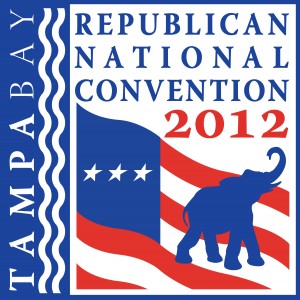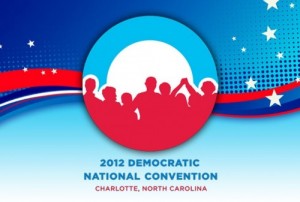God got a lot of free press during the recent political conventions. I’m not sure that’s a good thing, but it certainly reveals something interesting about our individual and collective notions of God. The Republican platform, adopted at the RNC, contained 16 references to the deity. The DNC left the name of God out of the initially adopted platform, though it made reference to faith several times. After some disagreement, God’s name was added in an amended vote. I wonder if God prefers (if God has feelings) having the name trotted around like a show pony or having it omitted altogether. God promises to play a prominent role for many through the rest of the campaign.
 My first thoughts after the conventions was, “Which God did the RNC include and which God did the DNC omit?” This question is not meant to sound glib. So much of the time, when the talk turns to God, whether it’s in the political arena, in church, or in casual conversation, those involved seem to assume that everyone has the same images and assumptions about God. God is God is God. Except that it is not so. Just within the Christian faith, the range of God images is vast. While people may be talking about the same God, if you start probing, you are likely to find that each person has some radically different ideas about the god to whom they refer.
My first thoughts after the conventions was, “Which God did the RNC include and which God did the DNC omit?” This question is not meant to sound glib. So much of the time, when the talk turns to God, whether it’s in the political arena, in church, or in casual conversation, those involved seem to assume that everyone has the same images and assumptions about God. God is God is God. Except that it is not so. Just within the Christian faith, the range of God images is vast. While people may be talking about the same God, if you start probing, you are likely to find that each person has some radically different ideas about the god to whom they refer.
 For example, I wonder if the RNC and the DNC were making reference to the God of the 6-day creation or the God of the Big Bang, the God of evolution or the one who made all plants and critters in their current form? Were they talking about the God who knows our every move or the God who allows us expansive freedom; the God who can be convinced to change the course of events through prayer or the God who allows life’s events to unfold and then provides us resources? Is it the God of Terry Jones who hates everyone Jones hates, or the God who loves all humankind, regardless of the name they give their deity? The questions about “which God?” go on and on.
For example, I wonder if the RNC and the DNC were making reference to the God of the 6-day creation or the God of the Big Bang, the God of evolution or the one who made all plants and critters in their current form? Were they talking about the God who knows our every move or the God who allows us expansive freedom; the God who can be convinced to change the course of events through prayer or the God who allows life’s events to unfold and then provides us resources? Is it the God of Terry Jones who hates everyone Jones hates, or the God who loves all humankind, regardless of the name they give their deity? The questions about “which God?” go on and on.
When asked, “Do you believe in God?” my temptation is to respond, “You’ll have to be a little more specific with what you mean by ‘God’,” but that would likely create more discussion than I want at the time.
What occurs to me is that each of us is working with our best snapshot of God. Like a snapshot, it’s not the whole picture. The snapshot is based on a person’s perspective, experience, worldview, culture, knowledge base, all the things that inform or limit our understanding. The same limitations apply to the Biblical writers.
My current snapshot of God, now that I am in my 60s, has little resemblance to the snapshot I carried when I was 6 or 16. It is likely a different snapshot than it would have been had I been female or African-American or had grown up in a third-world country.
How a person describes God says more about the person than it does about God. It says more about how that person views the world and what circumstances has brought the person to that moment. It says more about what has shaped that person than it does about the essential nature of God. Our talk of God is always our best, most recent snapshot of God, usually based on what we learned from our most recent disappointment, tragedy, or life calamity. That’s when we are most likely to modify our image of God.
There is comfort in including the name of God in the political platform, in our civic discourse, or in our prayers before activities, but there is rarely clarity in doing so. It might be a good idea when talking about God and other things of great importance to use the disclaimer, “This is not the truth. It is merely my best understanding at this time in my life.”
0 Comments until now
Add your Comment!